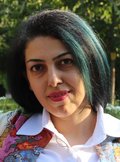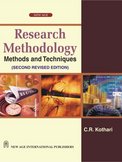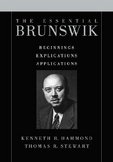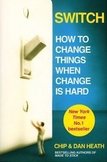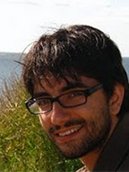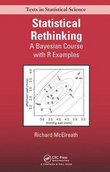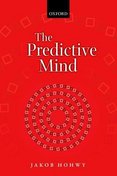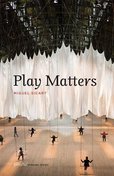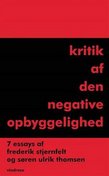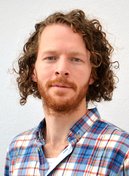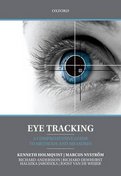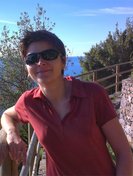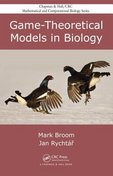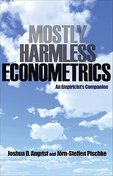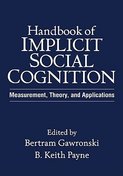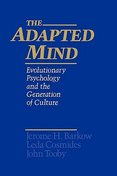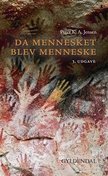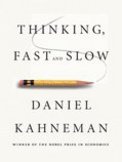Recommended books by Associated Researchers

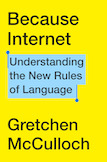
Johanne S. K. Nedergaard: PhD student at the Department of Linguistics, Cognitive Science and Semiotics.
Because Internet: Understanding the New Rules of Language by Gretchen McCulloch.
This is an extremely entertaining book about how being on the internet has changed the way people use language. It puts a spotlight on how swiftly our grammar and lexicon can change, and makes you realise that you already understand these new rules without even being aware of it.

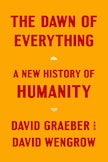
Arnault-Quentin Vermillet: Phd student at the Interacting Minds Centre and the Department of Clinical Medicine.
The Dawn of Everything by David Graeber and David Wengrow.
It is a very critical account of common narratives of the evolution of human societies, their ideological blindness, and their political motivations. At the same time, the authors outline their own "new history of Humanity", based on archeological and anthropological evidence, and with their own, acknowledged, ideological bias (Graeber is pretty famous for his anarchist views). In offensively short terms (the book is 700 pages): Humans are, and always have been, political beings, hence they've always arranged themselves in arbitrarily complex societies. They like to experiment, tinker and goof around, so these power structures are transient. They may change or collapse depending on time, environment, encountering other societies, or just for fun.
Even if the line between speculation and scientific investigation is not always clear, it was a very intellectually stimulating read. In cognitive science, there is a tendency to aim for simple evolutionary explanations to complex dynamic behaviour. But most often, evolutionary arguments are mere speculation, and at best they are (likely untestable) hypotheses. Yet, they carry some authoritative weight and are easily mistaken for facts.
In my opinion, the main interest of the book for cognitive scientists lies in:
(1) Questioning the history, social context, and political use of evolutionary theories in order to understand why they are so persistent in the scientific landscape, despite adding little to no value to a scientific claim.
(2) Realising that you can have interesting theories and hypothesis on the complex social behaviour of humans without relying on pseudo-evolutionary assumptions.

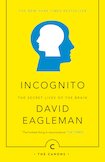
Nina Nielsen: Research assistant at the Department of Management, Aarhus University.
A book that opened my eyes to how truly fascinating our subconscious mind is was the book Incognito - The Secret Lives of the Brain by David Eagleman. Really a great (and fairly short) read for everyone interested in learning about the human brain and how it shapes behaviour without us even noticing.
I also really enjoyed The Power of Habit by Charles Duhigg, in which he explains everything about habit formation from a personal, managerial, and marketing point of view.
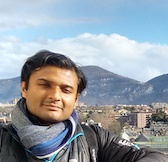
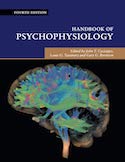
Unnikrishnan Radhakrishnan: Ph.D. student at the Department of Business Development and Technology
"Handbook of Psychophysiology" by Cambridge University Press, edited by Cacioppo, Tassinary, and Berntson. It is an accessible and invaluable source of knowledge for researchers interested in using EEG, ECG, eye tracking, GSR, and other forms of biosensors in their work.

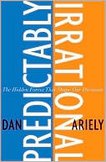
Lisa Stickel: PhD fellow at the Department of Management.
I found the book "Predictably Irrational" by Dan Ariely very inspiring. In contrast to many other books, this one tends to look behind the scenes, and lets us think along issues that would never make it into an article.

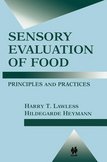
Nikoline Bach Hyldelund: PhD fellow at the Department of Food Science
Sensory Evaluation of Food, by Harry T. Lawless & Hildegarde Heymann

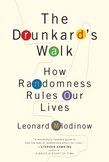
Camile Maria Costa Correa: Postdoc at the Department of Food Science
Principles of Neuroscience, by Eric Kandel (but I am biased) and The Drunkard's Walk, by Leonard Mlodinow (this one is less academic, but still very interesting).

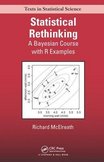
Arndis Simonsen, Postdoc at the Interacting Minds Centre
Statistical Rethinking by McElreath is a great way to get in to Bayesian statistics and modelling using R.

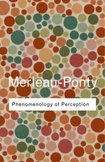
Daina Crafa: Assistant professor at the Interacting Minds Centrer
Phenomenology of Perception by French philosopher Maurice Merleau-Ponty is among my favorite academic books. As scientists, we know a lot about human psychology and neurobiology, but we are still trying to understand what goes on “inside the head”. Phenomenology of Perception offers a detailed examination of some of the experiences of being human that continue to elude empirical measurement.

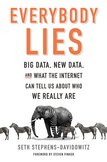
Alexandra Regina Kratschmer: Associate Professor at the Dept. of Linguistics
I just read Annette Markham's "Life Online" from 1998, and even if it has been written two decades ago, it still contains interesting observations on internet behavior, but also on ethnographic methods. I also very much enjoyed the popular mediation book "Everybody lies. Big Data, New Data, and What the Internet Can Tell Us About Who We Really Are" by Seth Stephens-Davidowitz (2017).

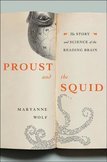
Ethan Weed: Associate Professor of Linguistics
I recently read "Proust and the Squid" by Maryanne Wolf. It's maybe more pop science than academic, but it does a great job of illustrating why research on reading is exciting and relevant.
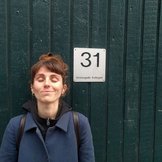
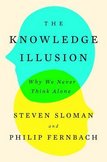
Roberta Rocca: PhD student at the Department of Linguistics, Cognitive Science and Semiotics
Somewhat half-way between an academic book and a popular science book, "The Knowledge Illusion" by Philip Fernbach and Steven Sloman was a really enjoyable read.


Kristian Tylén: Associate Professor in Cognitive Science employed by the Department of Linguistics, Cognitive Science and Semiotics
I really do not read a lot of academic books these days. Almost exclusively journal articles (and a bit of fiction). The last book I read from page 1 till the end was Scott Kelso's "Dynamic Patterns", which I enjoyed.

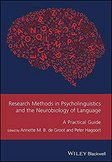
Byurakn Ishkhanyan: Postdoc at the Department of Linguistics, Cognitive Science, and Semiotics at the School of Communication and Culture
"Research Methods in Psycholinguistics and the Neurobiology of Language", edited by Annette M. B. de Groot and Peter Hagoort. It contains lots of practical information for those who want to carry out psycho- and neurolinguistic research that most of us have learned the hard way.
Arezoo Shahrabi Farahani: PhD student in Economics and Business Economics
"Research Methodology: Methods and Techniques by C. R. Kothari. It helps you to do your experiment, and gives information about research questions, the experiment, and the analysis."
Erik Stoltenberg Lahm: PhD student at Department of Management
"I would highly recommend anything by Egon Brunswik. His book, “The Conceptual Framework of Psychology”, is just one of his great works. He is an excellent writer and was a pioneer in the field, putting our understanding of decision making into a new light."
Brandi S. Morris: PhD student at Department of Management
"Hmmm... academic book... JUST ONE?! That's like asking Santa to pick his favorite elf ;-) Three that have seriously influenced my own thinking and research: 'Switch' (Chip and Dan Heath), 'Predictably Irrational' (Dan Ariely) and 'Thinking: Fast & Slow' (Daniel Kahneman)."
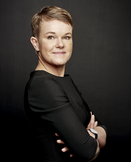
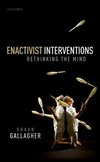
Linda Greve: Educational Developer at Centre for Teaching and Learning
"I really enjoyed reading Enactivist Interventions: Rethinking the Mind by Shaun Gallagher. He touches upon important points in both metaphor research, cognition and philosophy of science."

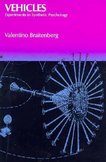
Uffe Schjødt: Associate professor, Department of the Study of Religion
I rarely read academic books. They are so overrated. I take my info in liquid form or in journal articles.
.. but hard pressed, I would recommend 'Vehicles - Experiments in Synthetic Psychology' by Valentino von Braitenberg. Good friend and COBE co-affiliate, Kristoffer L. Nielbo gave it to me many years ago. It is awesome, something about it really touches the spirit of COBE lab.

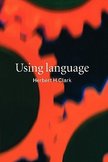
Cordula Vesper: Assistant Professor, School of Communication and Culture
I know it is quite old by now but Herbert Clark’s 1996 book Using Language has inspired me quite a bit. I think it is still a valuable read to make you think about language and social interaction more generally.

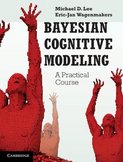
Joshua Skewes: Associate Professor, School of Communication and Culture
Michael Lee and E. J. Wagenmakers Bayesian Cognitive Modeling is always open on my desk. Fantastic resource if you want to get into Bayesian Graphical Modeling (which you should)
Jessica Barker: Junior Fellow, Aarhus Institute of Advanced Studies
Somewhere between pop science and academia, Richard Dawkins' The Selfish Gene is a well written introduction to the logic behind behavioral ecology by one of the early big names in the field. For a more academic overview, Davies et al.'s Introduction to Behavioral Ecology is great.
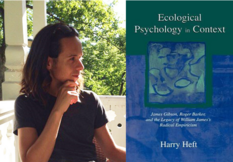
Joshua Brain: former Assistant Lab Manager, Cognition and Behavior Lab
Just one book is tricky...I'll pick a book that I anticipate is unread by most researchers, namely Harry Heft's 'Ecological Psychology in Context' (2001). The book describes and evaluates psychology's lineage from William James, through Edwin Holt, to James Gibson and Roger Barker, before extending their respective ideas and theories. A very interesting book that espouses important, if not challenging, viewpoints.
Riccardo Fusaroli: Associate Professor, Department of Communication and Culture.
Only one? Darn! Then it should be "Statistical Rethinking" by Richard McElreath, a tour de force into what we really mean when we do statistics and how to do it right.
(I've also found "Darwin's unfinished symphony" by K. Laland and "Scale" by Geoffrey West very thought-provoking.)
Marc Andersen: PhD Student, Department of the Study of Religion and Interacting Minds Centre.
"The Predictive Mind" by Jakob Hohwy.
Andreas Lieberoth: Assistant Professor, Department of Educational Psychology, Danish School of Education and Research Fellow, Interacting Minds Center.
Recently I've been excited about Play Matters by Miguel Sicart.
Emma von Essen: Associate Professor, Department of Economics and Business Economics.
"Kritik af den negative opbyggelighed", 2005, by Frederik Stjernfelt and Søren Ulrik Thomsen.
Martin Bagger: Assistant Professor, Department of Economics and Business Economics.
"Eye Tracking: A Comprehensive Guide to Methods and Measures", 2011, by Kenneth Holmqvist et al.
Oana Vuculescu: Research Assistant, PhD, Department of Management.
"Nonlinear Dynamics and Chaos", 2001, by Steven Strogatz.
Lars Bach: Assistant Professor, Department of Culture and Society.
“Game-Theoretical Models in Biology", 2013, by Mark Broom and Jan Rychtar (Chapman & Hall).
Leonie Gerhards: former Postdoc, Department of Economics and Business Economics.
“Mostly Harmless Econometrics – An Empiricist’s Companion” by Joshua D. Angrist and Jörn-Steffen Pischke.
Alexandra Kraus: former PhD student, Department of Management.
Until today, my research bible has been the "Handbook of Implicit Social Cognition" from Gawronski and Payne.
Lene Aarøe: Assistant Professor, Department of Political Science and Government.
The Adapted Mind by Jerome H. Barkow, Leda Cosmides and John Tooby is a key book on how the mind works and gives a rich overview of the field of evolutionary psychology.
Lasse Laustsen: Assistant Professor, Department of Political Science and Government.
One of the best books I have read on human evolutionary history is “Da mennesket blev menneske” by Peter K. A. Jensen. The book provides a very well-written introduction to and overview of human evolution and how humans have spread and inhabited the Earth over time.
Dan Nguyen: former PhD Student, Department of Economics and Business Economics.
Daniel Kahneman’s “Thinking, fast and slow” from 2011 is a great book introducing his work with Amos Tversky, which was been awarded the Nobel prize. Basically, it questions the assumptions made in economic rationality. In the book, he proposes two systems of thinking: one which is fast (driven by emotions and heuristics) and another which is slow (driven by rationality and consciousness). The book discusses how these two systems interact and is a great layman’s introduction to concepts such as loss aversion and prospect theory
